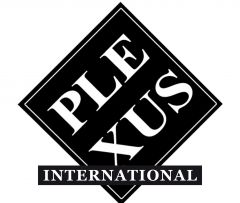
In the 1980s, during a period of significant cultural vibrancy and artistic experimentation, Plexus International was born in New York and later expanded to Dakar, Cagliari, Rome, and Amsterdam. It was founded by a diverse group of artists who, rejecting the dynamics of the art world and market, sought a different space-time to freely share ideas and experiment, aboard a metaphorical ship of art slaves, beyond the limitations of existing artistic scenes.
From 1983 to 2023, Plexus has carried out numerous collaborative projects and events in various parts of the world, bringing together musicians, visual artists, performers, poets, theatre actors, dancers, playwrights, scholars, and community activists. These projects have involved both established names and emerging artists. These events, which have characterized Plexus's journey and included over 1,000 artists, remain an unexplored part of contemporary art history.
This eclectic collaborative mix has become the hallmark of Plexus's artistic events, creating an atmosphere full of inspiration, where ideas flowed freely like a river in the creation of a unique form of collaborative art known as "The Plexus Art Co-Opera."
The Art Co-Operas have been the distinctive feature of Plexus's journey, uniting diverse communities of artists with varying visions and artistic forms, while also providing opportunities for art networking among the public on pressing issues such as human rights, peace, biodiversity loss, desertification, and the value of cultural diversity. In 2008, they launched a call for the Safeguarding of Cultural and Natural Heritage of Humanity from the House of Slaves in Goree, Dakar, symbolizing the erosion of our historical memory and all form of ancient and contemporary slavery.
Over the years, sperimental communication and digital art exchanges have also been explored within the Plexus art journey.
- In 1987, within the art co-opera “Serpente di Pietra" in Gavoi, Sardinia, digital art exchanges between different locations around the world, occurred via I.P., Sharp bitnet and Earn network facilitated by Dax Group of Carnegie Mellon University and the Physics Department of the University of Cagliari, before the advent of the internet.
The underlying premise of all Plexus activities has been the belief that fostering a more conscious understanding of the value of diverse artistic practices and the role of art as a sustainable community resource could significantly strengthen the mutual respect needed to coexist with diversity and face the challenges our planet is confronting together.
In a global world where different values and cultures are increasingly clashing, Plexus International offers an open model of art that allows for global participation even for small and distant communities, often separated yet sometimes close to one another.
The art journey of Plexus continues...



